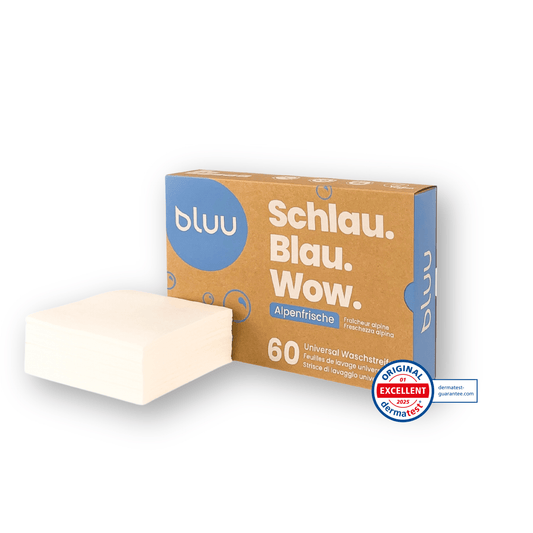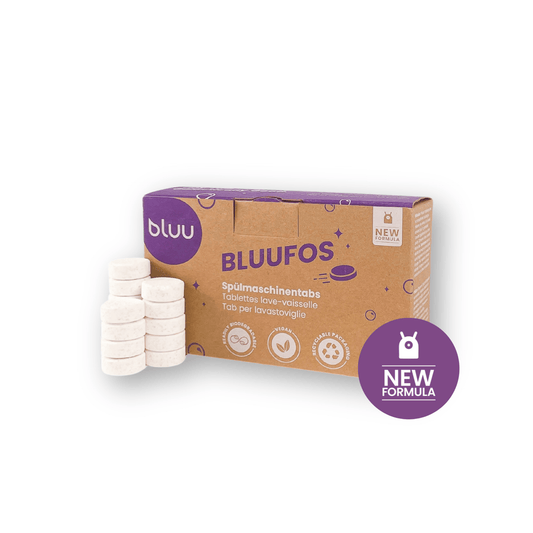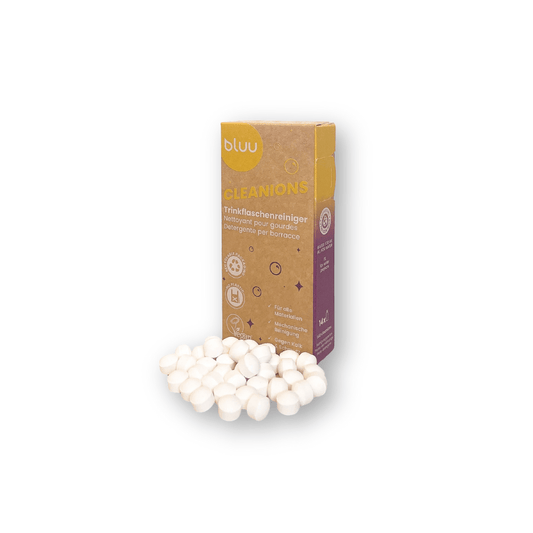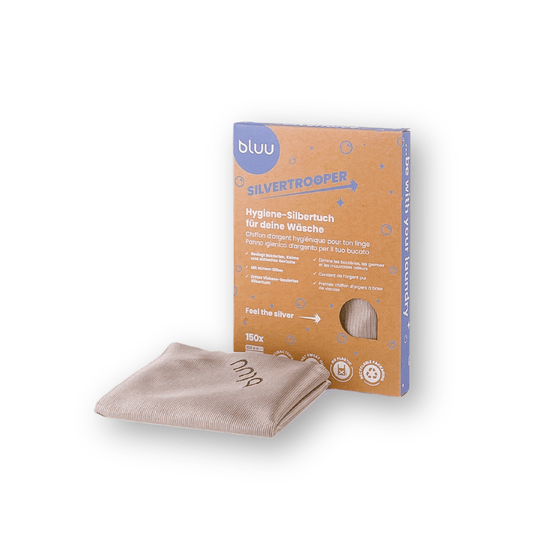Laundry myths - truth or misconception?

From old household remedies to modern washing myths - laundry washing has a long history full of tips and tricks that have been passed down from generation to generation.
In this blog post, we take a closer look at five persistent myths and reveal which tips turn out to be true washing wisdom and which turn out to be colorful soap bubbles!
1. wash new clothes before wearing them
We've all been there: you buy a new favorite item and can hardly wait to finally put it on. Unfortunately, you have to be patient because it needs to be washed before you wear it. But is it true that new clothes have to go in the washing machine before you wear them for the first time?
Yes, that is true! Manufacturers often treat textiles with chemicals to protect them from creasing and mildew. To avoid skin irritation and allergic reactions, you should definitely wash your clothes so that chemical residues are rinsed out.
In addition to chemical residues, hygiene also plays a crucial role when it comes to washing your new favorite items before wearing them. Even if new clothes look clean, they may have come into contact with dust, dirt, sweat or other impurities during storage or in the store. By washing them before wearing them for the first time, you can ensure that any germs are removed and your clothes are refreshingly clean.

2. put jeans in the freezer instead of the washing machine
What do you mean - freeze your jeans instead of washing them? This is another tip that is widespread on the internet. Washing is not good for our favorite jeans, instead a night in the freezer should make them fresh again. This method is not supposed to remove dirt, but to reduce germs and thus eliminate unpleasant odors. But is it true that freezing kills bacteria?
The scientific community is unanimous: no, it doesn't!
Although the growth of bacteria is reduced during freezing, they come back to life as soon as the jeans thaw and warm up again.
Airing is a more effective alternative. If your jeans are not dirty but you have already worn them, airing them helps to eliminate odors. In addition, sunlight can reduce germs and therefore acts as a natural disinfectant. But caution is advised here: Excessive sun exposure can lead to faster color fading and fabric damage.
Conclusion: Instead of putting your jeans in the freezer, hang them outside in a shady place to avoid intense sunlight.

3. turning them inside out protects the color of the jeans during washing
This leads us directly to the next myth: the color of jeans is protected if you turn them inside out when washing them. Is that true?
Yes, it is true! The color of the jeans is protected if they are turned inside out. The jeans are protected from rubbing against the drum, which keeps the color longer. It is not only gentle on the color of jeans, other items of clothing made of strong fabric and dark or printed textiles also benefit.
Good to know: Struggling with stains on your clothes? No problem, just turn the garment inside out! This will prevent the stain from settling in further, protect the front from possible damage caused by stain treatment agents and also ensure even stain removal.
Are you already familiar with bluu stain soap? Our environmentally friendly stain soap is extremely effective against a wide variety of stains, including stubborn red wine and grease stains. It is also 100% vegan and is made in a traditional soap factory in Germany using Greek olive oil and soapwort from the Alps.
Curious to find out more? Click here for the bluu stain soap.

4. a lot of detergent helps a lot
"The more, the better". This principle may be true for some things, but is it also true for detergents?
The answer is clear: No, it's not!
There are many reasons for this:
Firstly, too much detergent can lead to unsightly detergent residue remaining on clothes, which feels sticky and magically attracts dirt and dust. This can even cause skin irritation and allergies if you have sensitive skin.
Detergent residue can also make your clothes as stiff as cardboard. This is because excess detergent is difficult to rinse out, causing damage to the fibers.
More detergent also means that you have to buy new detergent more quickly, which puts an unnecessary strain on your budget.
But there's more. Too much detergent not only harms you and your clothes, but also the environment: the excess chemicals end up in waste water and pollute our waterways.
We realize that it's not always easy to find the right dosage. Sometimes too much detergent simply slips through your fingers. But cheer up, we have a solution for you to say goodbye to overdosing once and for all!
Our bluu washing strips are ultra-concentrated and already perfectly dosed - say goodbye to unintentional overdosing. Less detergent in the machine also means less impact on the environment. Win-win for everyone, right?
Click here for the bluu washing strips.

5. fabric softener makes towels fluffy
The perfect idea of towels? Wonderfully fluffy, wonderfully fresh-smelling and ready to hug you. The idea is that you should use fabric softener to make them nice and soft and cuddly. But is that true?
No, it's not true!
The explanation is simple: fabric softener forms a film on the fibers of the towel, which means that the fibers can no longer absorb moisture as well. This makes it much harder for your towel to dry you properly after a shower. If towels become stiff and scratchy over time, this is usually due to too much fabric softener.
Pro tip: Use bluu dryer balls instead of fabric softener to give your towels an extra boost of fluffiness! Our bluu balls act like a natural fabric softener without leaving a film on the fibers. They also ensure that laundry dries faster and wrinkles less, which not only saves time and electricity when drying, but also when ironing.
Bluu balls - better for your clothes and better for the environment!

Don't have a dryer but still want soft clothes?
Use the bluu Applecadabra washing strips. These contain natural ingredients that make your laundry softer and smoother.




